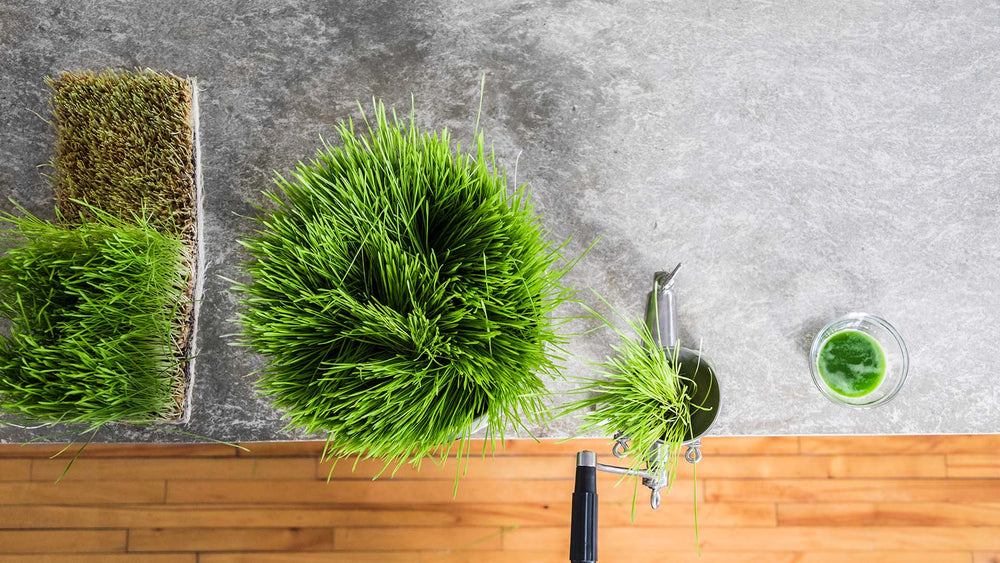The saying “patience is a virtue” applies to all parts of your life, including health, relationships, and business. Remaining calm and waiting for the right moment to do something can save you time and money and bring you a better result than rushing.
Patience benefits all your relationships, at work, at home and with friends and strangers alike. Here are a few ways patience improves your life, and some tips on how to develop it.
Patience Saves You Money
An article in the Boston Globe highlighted the growing culture of impatience in today’s society. Now that we’re bombarded by lightning-fast tech and same-day delivery, waiting is an outdated concept to many people. Convenience and speed are even more important than saving money to some consumers.
Americans saved an average of 3.6% of their earnings in late 2016, compared with a high savings rate of 17% in May 1975. Although the economy may have a lot to do with the lower savings rate, the need for immediate gratification, especially among young people, may have a lot more to do with it.
Being Patient Gives You Better Results than Rushing Through Life
A patient person is able to handle delays or annoying situations without getting upset. An impatient person acts just like someone who’s quick to anger. Impatient people leap before they look, and act on emotion instead of logic.
You have more to lose than to gain from being impatient. When you’re in a hurry, you forget things (your car keys, wallet, important papers, etc.) that necessitate an extra trip to retrieve them. You may not fully prepare for a presentation if you’re impatient, and do a less than stellar job at an important meeting.
Being patience doesn’t mean you ignore the difficult situation or allow yourself to be taken advantage of; it means you know how to approach unpleasant changes with calm and logic.
How do you feel when you are impatient? Your body becomes tense, and your blood pressure may rise. Your heart may even race, or you may clench your fists or feel tightness in your jaws.
These symptoms are signs of stress. Ongoing stress leads to mental and physical problems, including heart disease, ulcers and anxiety.
Are you stuck in traffic? Before getting mad and cursing out the driver in front of you, ask yourself if there’s anything you can do to improve the situation. If there is something constructive you can do, like take a shortcut to your destination, do it. When you have no control over a traffic delay, fuming in your car won’t relieve the gridlock. Listen to the radio, talk with another person in the car, or check out the buildings along the street or highway.
Is Patience An Advantage or Disadvantage in Business?
In work situations, it’s better to respond than react. Reacting is more knee-jerk, and based on emotions, while responding requires thinking for awhile before addressing the issue at hand. It is much more balanced, and will not necessarily take that much more time than reacting.
In many companies, corporate procedures dictate that work is finished on a certain schedule, and by certain protocols. There’s no room for discussion before the project begins. Work is ordered by one person, edited by another, reviewed by yet another and this approach leads to many more revisions than necessary. The impatience of the corporate structure leads to more wasted time.
For entrepreneurs, taking time to develop a strategic business plan and get all the facts in place will give you an advantage over the “act now and think later” types. There are some cases when relying on instinct will suit you better than gathering information and waiting it out, but it takes many entrepreneurs years before they learn which approach is appropriate.
Health professionals agree that they need patience to give their patients the best care. The time it takes to collect data in long-term research studies and examine it is well worth the effort, as it gives doctors new insights into how to treat patients.
How to Develop Patience
Before you can develop patience, you need to figure out why you’re impatient. Notice the warning signs. What situations trigger you? Maybe you have to deal with long lines at the supermarket or an incompetent employee at the post office. Switching the supermarket or post office you go to, or going at a different time of day, may help you avoid crowds or put you in contact with a more efficient employee, but it won’t teach you how to become more patient.
Learn how to practice gratitude. Think about all the good things in your life today. Impatient people tend to want instant gratification, and then more gratification, without taking time to appreciate what they already have. Delayed gratification (being patient) can be a good thing – it can even make your richer. If you were given the choice of an instant cash reward or waiting another year for a larger reward, which would you choose?
If you have a problem with a sales clerk, a neighbor, or a co-worker, deal with the situation in a calm and rational manner. Learn how to be assertive, not aggressive. When you’re loud and insulting, people won’t take you seriously. It’s just as bad as being a pushover. People will avoid you, and it will be harder to get what you want when you want it – which was the problem in the first place.
How do you handle a problem in an assertive manner? Calmly state what the problem is, how it is inconveniencing you, and how you want it rectified. Keep your voice firm, but not angry or threatening. Ask for a supervisor if a sales or customer service rep can’t help you. Reason and logic will get you further than angry cursing. The latter may get you escorted out of the store or result in an abrupt end to your customer service call.
Take the following steps to determine when you are impatient and how to control it.
- Remember, you’re not on automatic. You have a choice to be patient or impatient, calm or angry. Never assume you can’t change your reaction to a situation at any given time. You are in charge of your emotions. It’s not the other way around.
- When you feel yourself getting angry or impatient, take slow, deep breaths and count to 10.
- Focus on calming your body. Concentrate on relaxing your muscles, from your toes to the top of your head.
- Keep a journal and record when you feel impatient and why. Consider ways to avoid or better handle these situations.
- Impatience sometimes occurs when you’re tired, hungry or dehydrated. Eat a snack, drink some tea, or take a nap if you think one of these situations is causing your feelings.
- Ask family and friends to tell you when you become impatient, and how your actions impact them. This means you’ll need to own up and admit to those closest to you that you have a problem. Admitting you are impatient is the first step to conquering the problem.
How Patience Benefits Your Health
Patient people have less stress and lower blood pressure than their impatient, hotheaded counterparts. A 2007 study called Patience as a virtue: Religious and psychological perspectives showed that patient people didn’t suffer from ulcers, acne, headaches and tend to sleep better than their Type A personality counterparts. When you become more patient, you reduce stress and experience better health.
Slow down, and take time to fully experience everything you do. When you’re impatient, you’re always in a hurry. Your main concern is getting things over quickly, and moving on to the next event or activity. Take time to smell the roses and enjoy work, home and leisure instead of always thinking about the next box on your “to-do” list.
More is Not Necessarily Better
Some people are more prone to impatience because they over schedule themselves. If you’re always rushing from appointment to appointment without time to spare, cancel a few meetings or at least give yourself some rest and relaxation between activities.
Stop overscheduling yourself and eliminate or reduce activities that aren’t essential, or that don’t make you happy. What is the point of being busy all the time if you’re unhappy and less productive due to the glitches caused by impatience?
Why Patience Is Essential to Your Relationships
Learning to be more patient will improve your relationships. Patient people make better friends, neighbors, and co-workers. They exhibit more empathy and compassion for others. A patient person will listen to the concerns of others while an impatient person will ignore them or scoff at what they have to say.
When you’re impatient, you’re irritable, angry and unpleasant to be around. This attitude will alienate people or scare them away. Keep this in mind the next time you feel like cutting to the front of a checkout line or throwing a tantrum in a restaurant because your meal is late. Impatience not only affects you and the immediate person you’re mad at (server, cashier, etc. but your friends, family and the other people in the immediate area.
Practicing patience helps nurture your relationships. It shows your spouse, parent, child or friend that you really care and have their wellbeing in mind.
Being patient doesn’t mean being dormant. It means taking the right amount of time to allow a child to learn a project, or wait for a friend to text your back. It means taking a step back when you feel hurried or anxious to let situations progress naturally instead of forcing the issue.
How Yoga and Meditation Give You Patience
If you have difficulty with the “mind over matter” approach to being patient, doing yoga and meditation will help you handle stress better.
A Vinyasa or yoga sequence for patience consists of two variations of the Seated Angle Pose, which strengthens your legs, spine and trunk. The Bound Angle Pose opens the hips to release tension and make your torso more limber. This pose is followed by the Head-to-Knee Pose which calms the brain and relieves anxiety and mild depression. The sequence ends with the Perfect Being Pose (a meditative pose similar to the Lotus) and the Corpse, which helps calm your breathing.
You can also release the pent-up tension that leads to impatience by taking a long walking or exercising. Physical activity releases endorphins to make you feel calmer and happier.
Any type of meditation will relax you and help you become more patient. Specific guided meditations are geared solely for increasing patience, including this breathing meditation. Deep breathing helps you visualize your breath to better focus on the moment, and it encourages increased oxygen exchange. It slows the heartbeat and stabilizes high blood pressure to make you calmer.
Meditating may seem difficult to master if you’re a Type-A personality, but practice every day until you become more relaxed. Start by sitting on the floor or in a chair with your eyes closed, doing breathing exercises.
Acknowledge the thoughts that come and go, dismiss them, and clear your mind. Keep doing this until you can keep extraneous thoughts from flowing. It will take awhile for you to do this if you’re a high-strung individual, but it will be worth it.
Improve Your Nutrition for Better Patience and Mental Health
The nutrients you put in your body play a big part in your mental as well as your physical well-being. If you eat lots of processed food, sugar and salt and drink a moderate to heavy amount of alcohol, you’ll be more susceptible to stress, anger and impatience.
Concentrate on eating fresh whole foods, and choose organic, grass-fed beef if you eat meat. When you eat fruits, vegetables, seafood and healthy snacks like air-popped popcorn and nuts, you’ll consume fewer calories and get the nutrients you need to stay healthy. The magnesium in leafy greens, Omega-3s in fish, and tryptophan in turkey and bananas help keep you calmer and more patient.
Taking a nutritional supplement can also help keep you calmer and more balanced. Happy Girl Mood Enhancer from Wheatgrass Love, contains wheatgrass, nature’s superfood, along with a proprietary blend of cayenne pepper, green tea extract, gotu kola and other nutrients to relieve anxiety and develop patience. Read more about wheatgrass here.
















